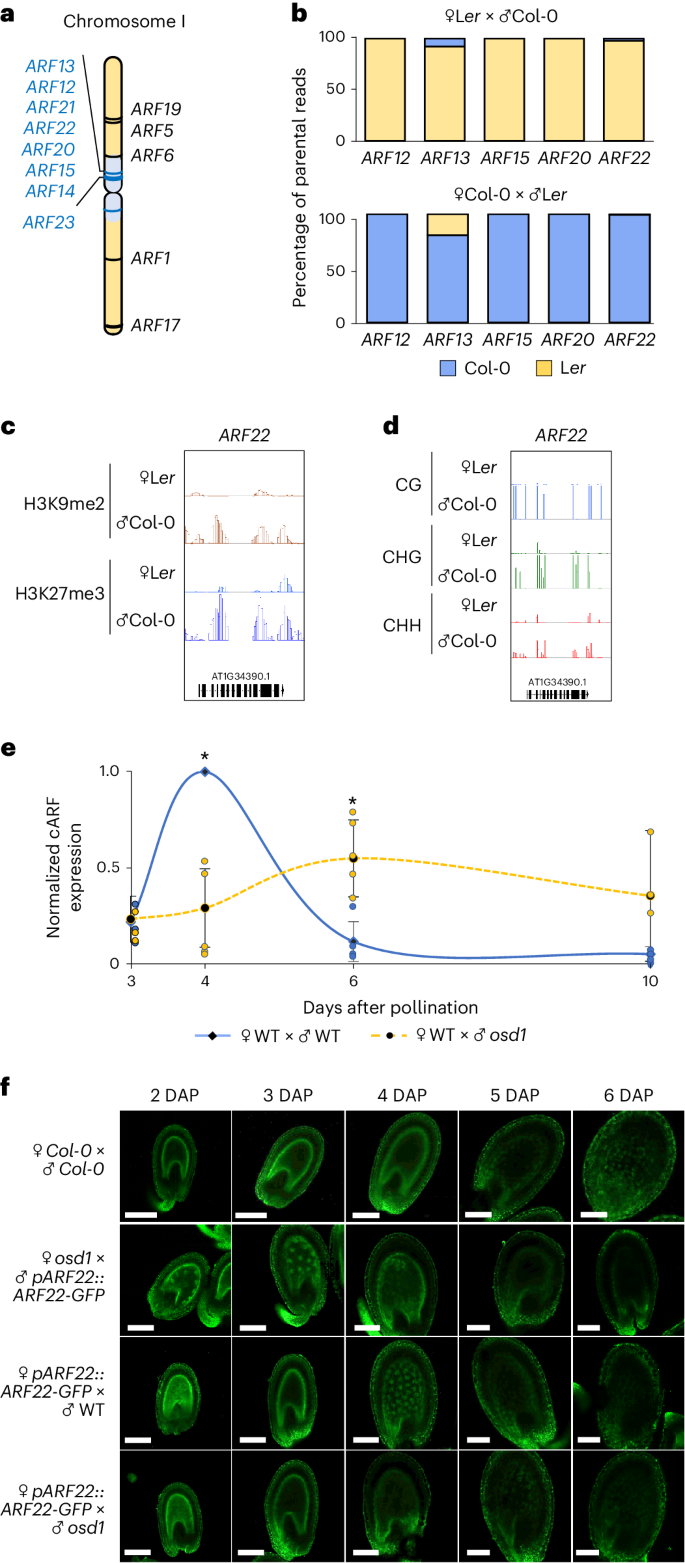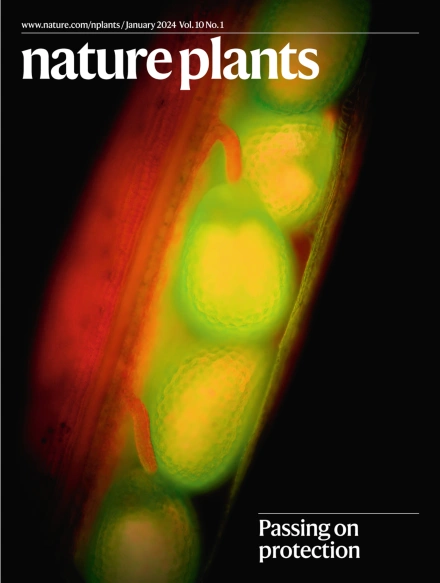叶黄素反应因子家族在亲本冲突驱动下对胚乳细胞化的调控
IF 15.8
1区 生物学
Q1 PLANT SCIENCES
引用次数: 0
摘要
胚乳是支持胚胎发育的生殖组织。在大多数有花植物中,胚乳细胞核的最初分裂并不以细胞化为结束;只有在进行了特定数量的有丝分裂周期后,细胞化过程才会发生。细胞化的时间对种子的活力和大小有很大影响。以前的研究表明,辅助素是启动核分裂和决定细胞化时间的关键因素。在这里,我们发现了作为胚乳细胞化剂量敏感调节因子的聚类辅助因子(cARFs)家族的参与。母系表达和父系沉默的 cARFs 可诱导细胞化,从而限制种子的生长。我们的发现与亲本冲突理论的预测一致,表明 cARFs 是这一冲突的主要分子靶标。我们进一步证明了 cARFs 在十字花科植物中的反复放大,这表明了通过加强母本对胚乳细胞化的控制而对亲本冲突做出的进化反应。我们的研究强调,亲本对胚乳细胞化的拮抗控制汇聚于辅助素的生物合成和信号传导。本文章由计算机程序翻译,如有差异,请以英文原文为准。


Parental conflict driven regulation of endosperm cellularization by a family of Auxin Response Factors
The endosperm is a reproductive tissue supporting embryo development. In most flowering plants, the initial divisions of endosperm nuclei are not succeeded by cellularization; this process occurs only after a specific number of mitotic cycles have taken place. The timing of cellularization significantly influences seed viability and size. Previous research implicated auxin as a key factor in initiating nuclear divisions and determining the timing of cellularization. Here we uncover the involvement of a family of clustered auxin response factors (cARFs) as dosage-sensitive regulators of endosperm cellularization. cARFs, maternally expressed and paternally silenced, are shown to induce cellularization, thereby restricting seed growth. Our findings align with the predictions of the parental conflict theory, suggesting that cARFs represent major molecular targets in this conflict. We further demonstrate a recurring amplification of cARFs in the Brassicaceae, suggesting an evolutionary response to parental conflict by reinforcing maternal control over endosperm cellularization. Our study highlights that antagonistic parental control on endosperm cellularization converges on auxin biosynthesis and signalling. In most flowering plants, early divisions of endosperm nuclei are not succeeded by cellularization. This study uncovered a family of clustered auxin response factors as dosage-sensitive, maternally expressed regulators of endosperm cellularization.
求助全文
通过发布文献求助,成功后即可免费获取论文全文。
去求助
来源期刊

Nature Plants
PLANT SCIENCES-
CiteScore
25.30
自引率
2.20%
发文量
196
期刊介绍:
Nature Plants is an online-only, monthly journal publishing the best research on plants — from their evolution, development, metabolism and environmental interactions to their societal significance.
 求助内容:
求助内容: 应助结果提醒方式:
应助结果提醒方式:


